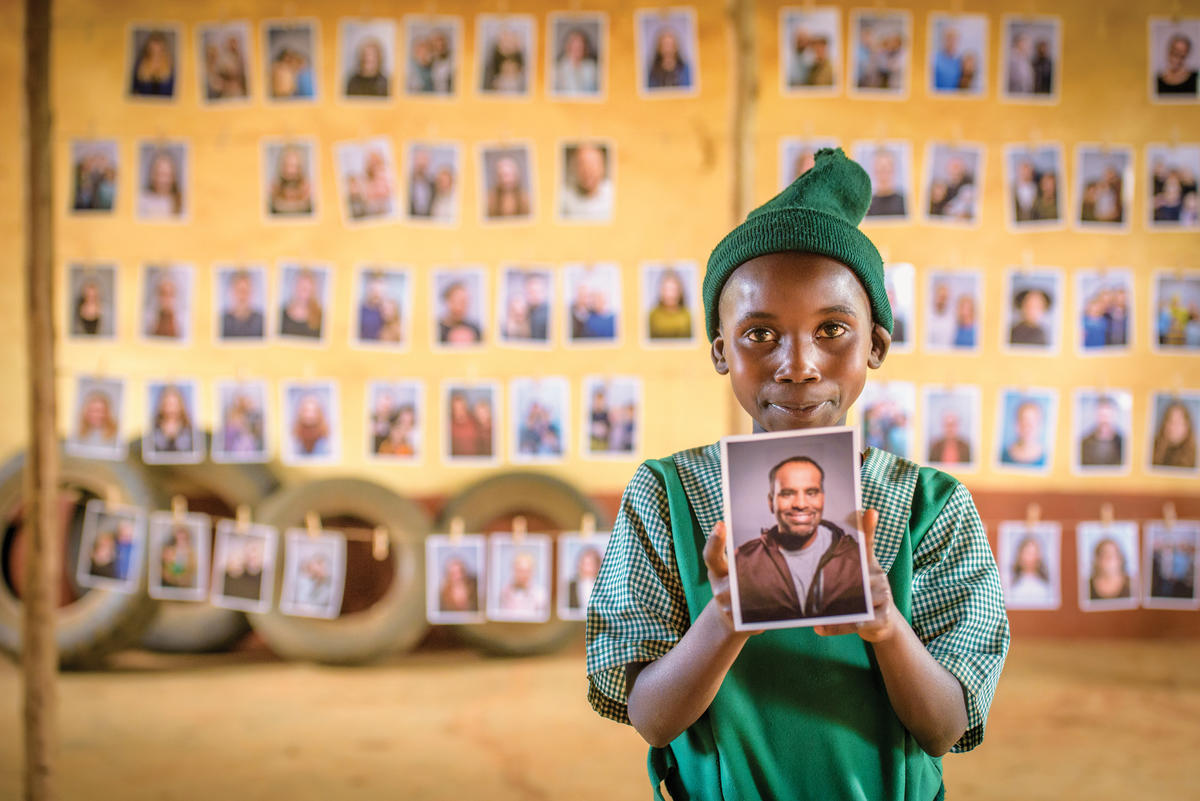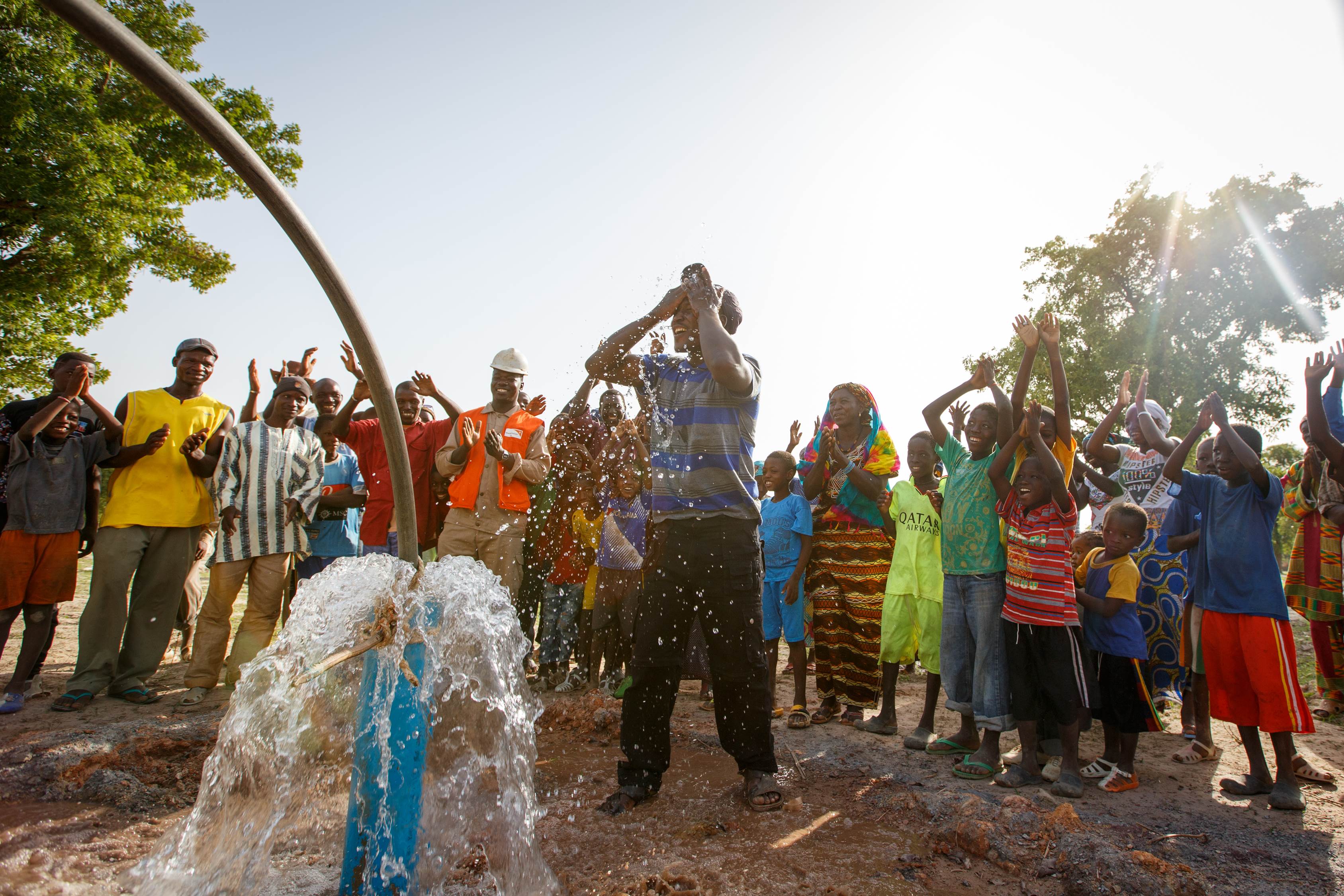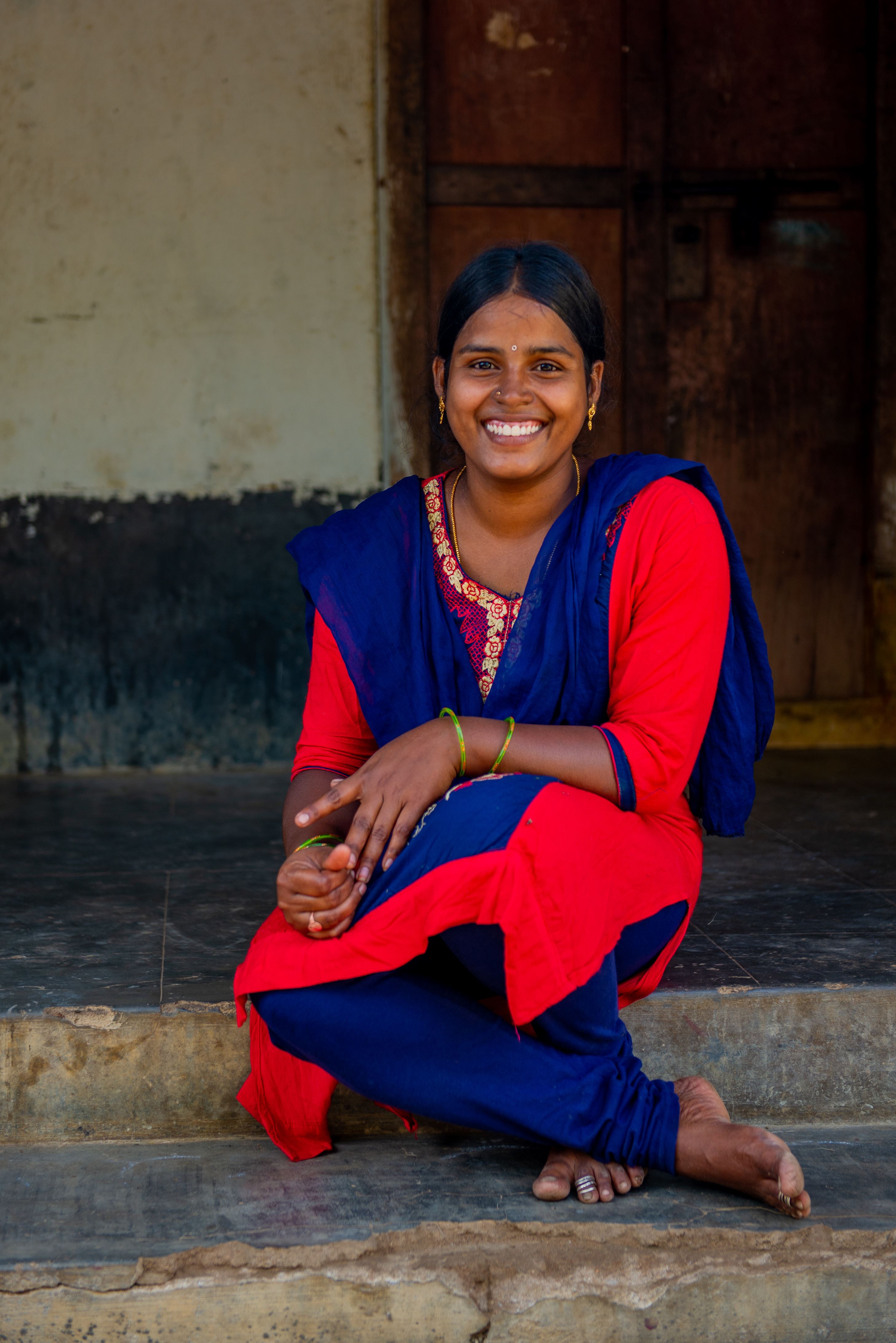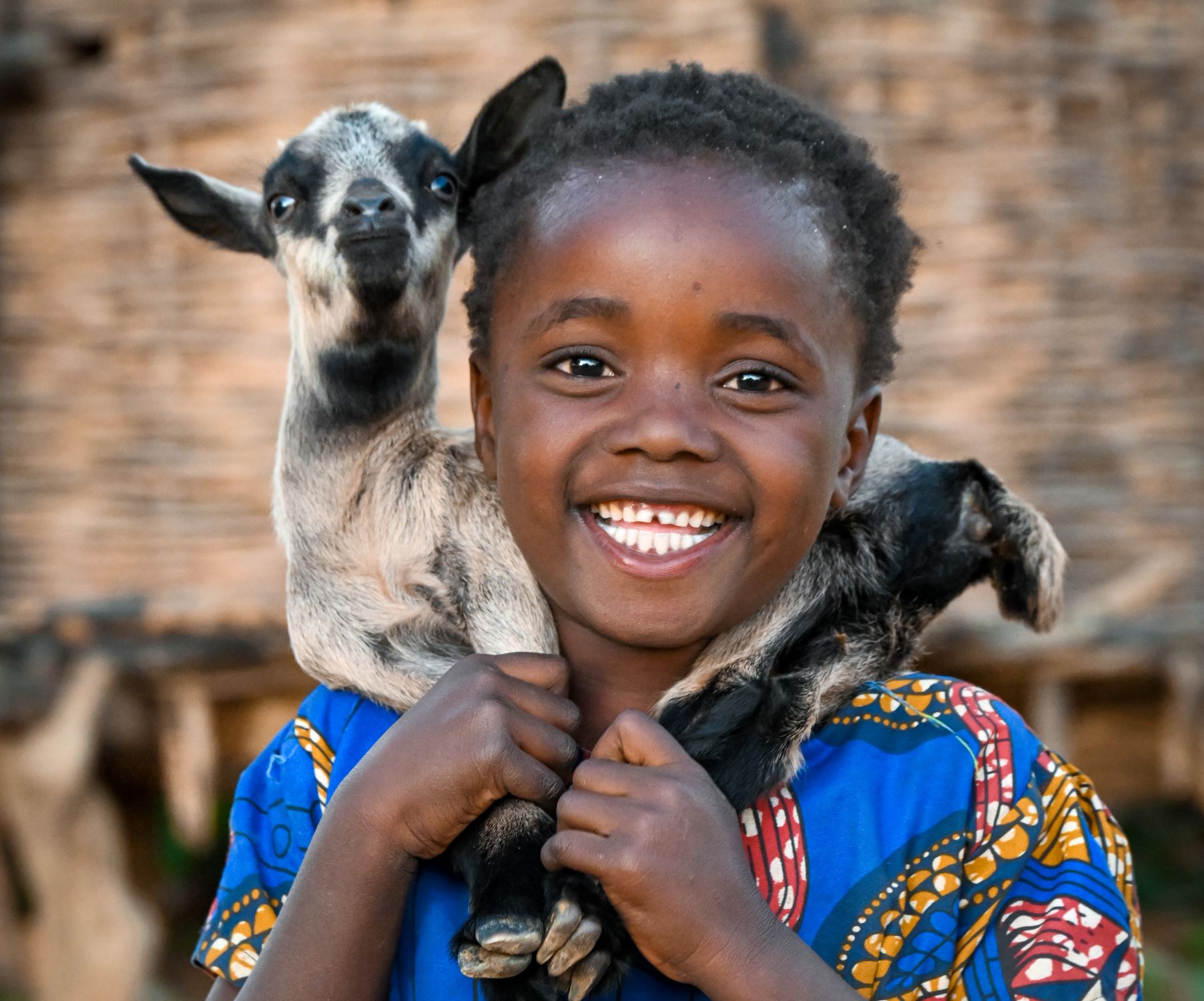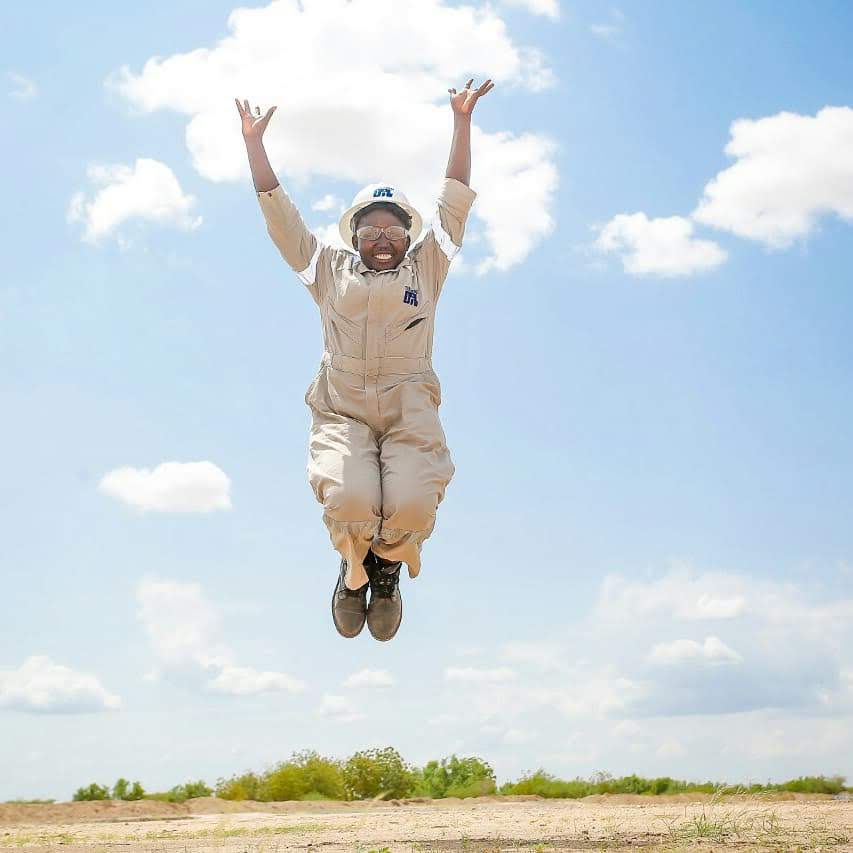
A promising young woman
A sponsored girl from Kenya overcoming the odds to bring water to her village.
From Kenya to Coventry
I was well-trained to be a Turkana wife: I can make traditional huts and milk a goat, cow and camel... So why am I writing this in Coventry? Have you ever felt lucky in your life? Well, I feel lucky and blessed in equal measure, all the way from Morulem village to England … in pursuit of my academic dreams. It’s not all about luck. They say hard work and resilience can bring you close to achieving your dreams, something I can sincerely vouch for.
A difficult start
I grew up in Morulem village, in Turkana County, Kenya. The village is known for its spectacular acacia tree cover and shade but wait until you step onto its spikes! As a kid, I never enjoyed being sent at night to buy or collect something. The tree trunks resembled people hiding in the dark!
I’m from a humble nomadic family of six siblings: three girls and three boys. Our home is centrally placed with acacia trees to the right and left and a view of the hill to the south-east and a nice view of the sunrise every morning.
Turkana county is one of the driest regions of Kenya. It has devastating droughts. The nomadic communities are marginalised, with a poor standard of living, high illiteracy levels and limited opportunities. The whole area suffers from water scarcity and insecurity issues that have cost many lives, including my own close family and friends.
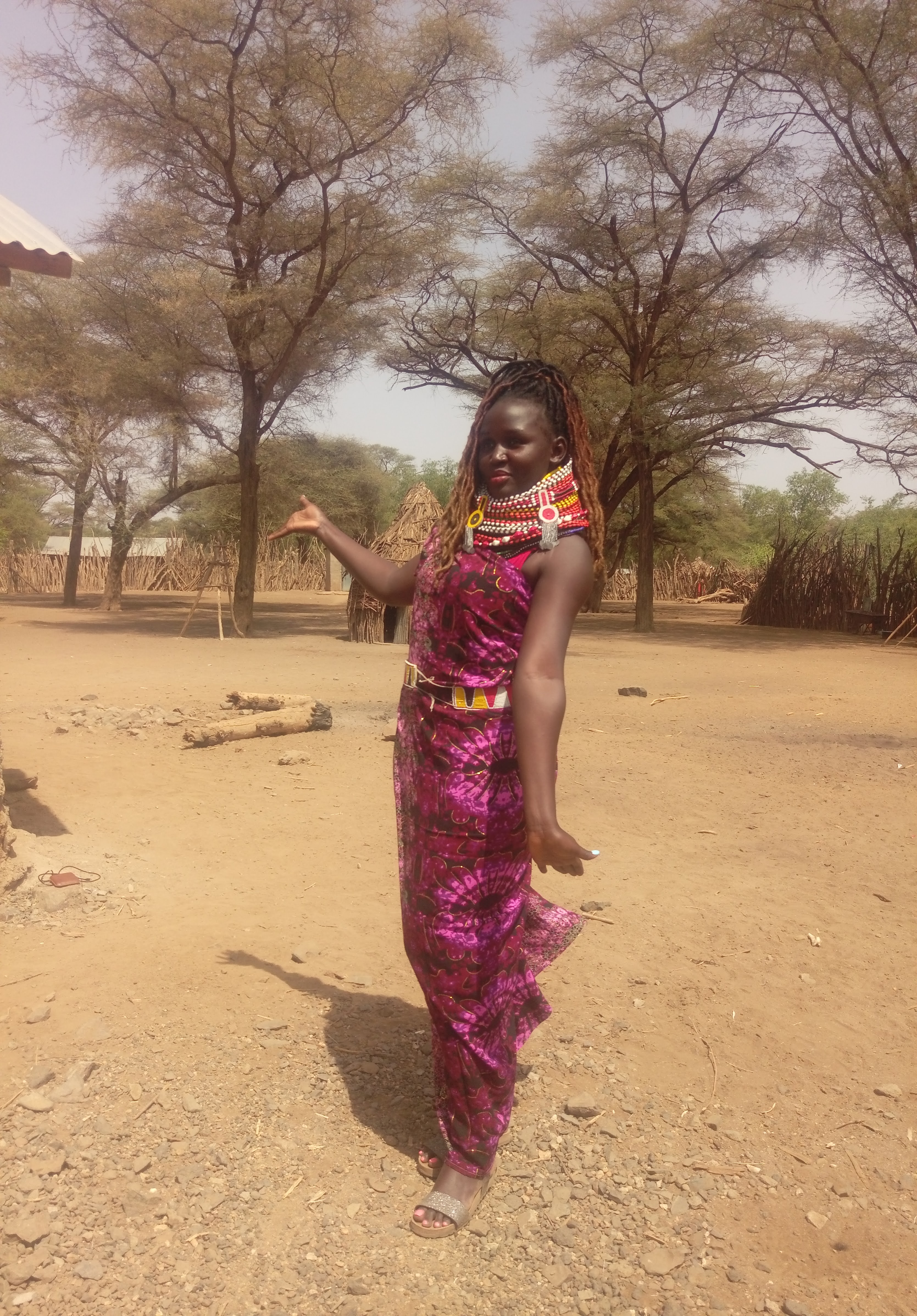
Water, health & education
The main water sources in places like my village are handpumps and shallow wells. The water quality breaches World Health Organisation Standards of Potable water. But options are limited so people use the water for themselves and their livestock, which increases their susceptibility to waterborne diseases.
Schools are understaffed and underequipped. Children have to walk more than 2 km to and from school on foot. It’s exhausting and discourages many from starting and completing primary level.
Girls’ rights?
Nomadism is the dominant culture. Men are empowered with all the decision-making while women are voiceless and obliged to be submissive. Girls are denied rights to education as it’s not considered important. In their early teens, they are subjected to cruel cultural practices in the name of training to be housewives.
While the situation is gradually shifting, as communities are more familiar with gender equality, real change will take time.
The arithmetic of a Turkana girl
I’m not passionate about numbers, but I can explain the arithmetic behind a Turkana girl. It is like savings deposited in a bank for 14-17 years, plus regular deposits (training to be a housewife) and a final withdrawal when the girl is given to her husband. But I was determined not to follow the usual equation.
Raised as the oldest girl in a nomadic family, I did all the house chores and herding during my early childhood. I was frequently harassed by male herders. This experience strengthened me; I face challenges head on.
My time was split between school, fetching water from one handpump located 4-5 kilometres from the village – at least 2-3 times a day, fetching 10-20 litres per trip – and taking livestock to the grazing field.
Today, half the village has a piped water system but as a kid, it was tricky and disappointing to fetch water. I waited long hours, as others raced past, and had to wait sometimes till late. Monday to Thursday I was in school and Friday to Saturday (and sometimes Sunday) I would take our goats to the grazing fields more than 10 kilometres from the village.
The cost of education
My teacher used to flog me for missing classes on Fridays until I struck a deal. I fetched water for her, or sometimes stole a cup of camel’s milk, to replace flogging. It worked.
My childhood was turbulent but I learnt many hard – and useful – lessons. I learned hard work, resilience and the benefits of multi-tasking. I always remember I’m a girl from a nomadic community: I have to work extra hard in my studies to prove my worth.

"Thank you for playing a pivotal part in my life.”
My father enrolled me in primary school so I could learn to write my name; I wanted to get free food. Food was scarce so getting a free meal was a privilege. But my school was almost three kilometres away, on the other side of the hill. I had to climb the hill daily to and from school. My sandals got worn out and many times I would go to school barefoot.
Before free primary education was introduced in Kenya, most parents could not afford to pay school fees, including my dad. Even afterwards, it was the parents’ duty to provide uniforms and stationery. For most, this was unaffordable and another barrier preventing children from education.
Fortunately, World Vision Child Sponsorship clocked in around the same time. Their mission was to encourage and sustain children in schools.
Child Sponsorship relieved a great burden from many parents. I got free school uniforms, books and mosquito nets throughout primary. Some of my friends received gifts from their sponsors abroad but I never did. Nevertheless, I wish I could say thank you to them for playing a pivotal part in my life.
Barriers to learning
I got asthma and could not fit in the community again, as it was considered a curse. My parents could not afford the treatment. Thankfully, World Vision Kenya facilitated my medical treatment from 2003 to 2007.
That same year, we lost all our livestock and became very poor. This meant going to secondary school and continuing to higher education seemed remote.
I was bright and hardworking but, after the loss of our animals, dropping out was imminent. When the national examination results were released, I emerged among the top performers and secured admission into one of the top prestigious schools in the country. But:
“We hardly afford even that one meal a day, how can I afford the school requirements, leave alone the school fees [which were above 40,000 Ksh]. Plus, your condition; we don’t know when your next attack will be”.
These were my dad’s words. He was right.
Sustained by friendship
Determined, I managed to secure local bursary funding. Constituency Development Funds (CDF) and local NGOs, such as World Vision, also came to my aid. I wanted to excel in school and gain government admission to university – so my parents wouldn’t have to struggle with fees again.
But at the boarding school, my upkeep was solely reliant on friends. During visiting days, while other students were excited to receive good food and shopping, my expectations were low. Mum came to see me with sometimes three litres of fermented milk, which I appreciate even now. After all, this is what they had.
However, I could trade a cup of fermented milk for a slice of bread, fruit or anything else that friends got from their parents! My best friends donated some of the shopping to me as they understood my situation. Reflecting, I don’t see any other way I'd have made it without World Vision and CDF support. I am forever grateful.
Find out more
How Child Sponsorship works
A thirst for study
Under government direct entry (financed by a loan from the Government of Kenya), my dream to pursue a BSc course in Hydrology and Water Resources Management was realised at South Eastern Kenya University.
I chose a water-related course as I had my village’s water situation on my mind, particularly the women and children who are the most affected by the crisis. Perhaps I could even save the future life of a girl or woman from this daunting struggle. I wanted to change the narrative in Turkana in my small way.
Since I received a government loan, I supported my younger siblings with what was left after school fees. It wasn’t enough so I used my skills in bead art and started making belts, earrings and other items. I even tried modelling to get more money for my siblings; to save them from going through what I had. My constant fear was that they might not be as strong as I am to look after themselves.
These activities were time-consuming and affected my studies. I got Second Class Honours (lower division). I was disappointed that I didn’t do better but my siblings were all progressing well, so my struggle paid off.
Mastering scholarships
After graduation, I secured an internship opportunity but had a burning spirit to do a Master’s degree. I was discouraged by my 2:2, I felt like I failed myself. But one day I decided to try and applied for water-related MSc courses at seven different universities worldwide. To my surprise, I got admission to four of them. I was thrilled.
I wanted to gain expertise in water and the environment to help my county. Turkana has excellent potential but skilled experts in the industry are rare. I completed my MSc in Environmental Water Management at Cranfield University with a 2:1 grade.
While doing my Masters, funded by Marshal Papworth, I also worked part-time to support my siblings and family. I carry all the responsibilities for providing food for my elderly parents, my brother, who lives with epilepsy, my younger brother, who is now enrolled on a diploma course, two sisters (one joined college recently and the other nearing the end of secondary education).
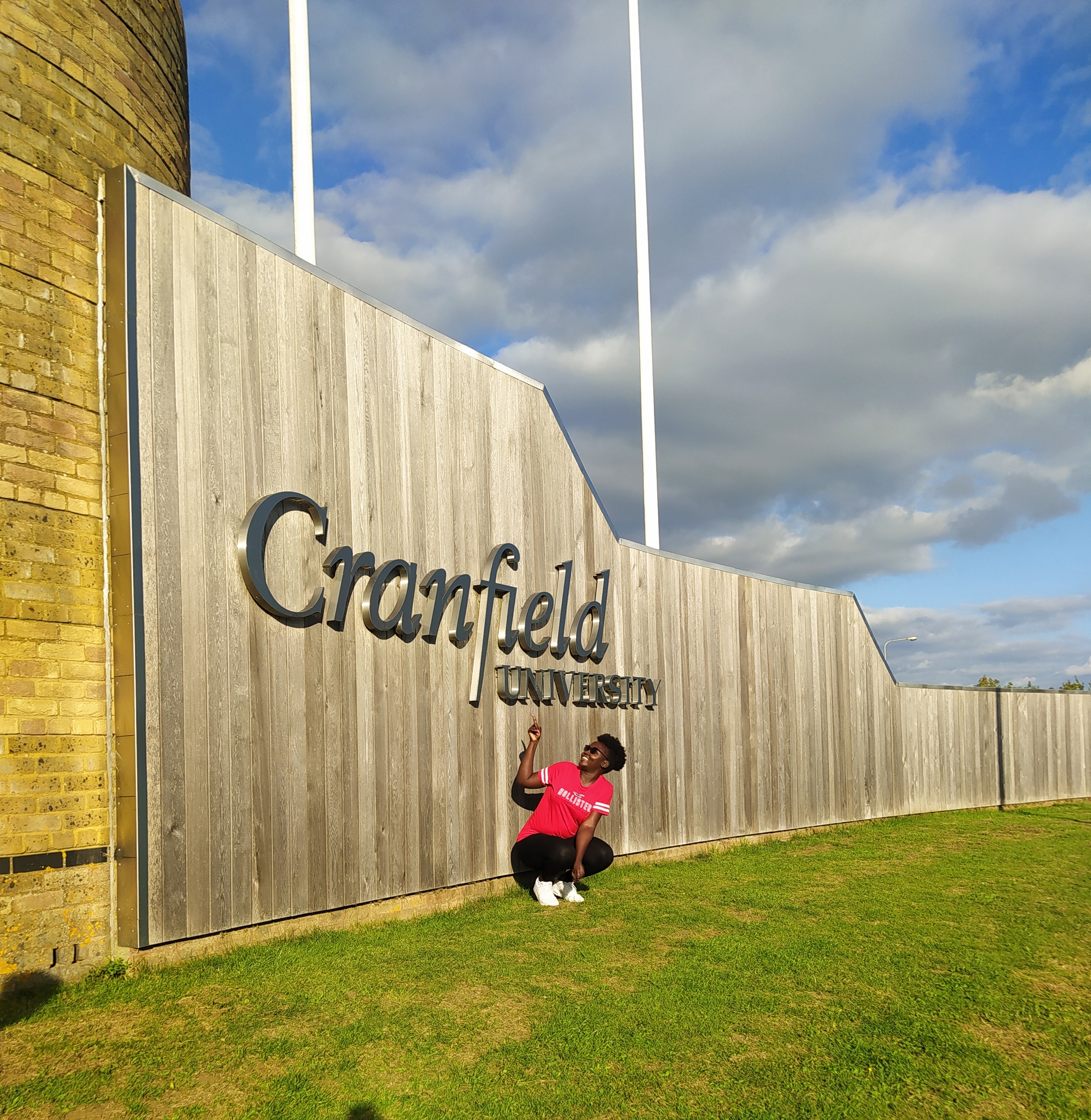
Bright future ahead
Obstacles are the stepping stones to success.
Today, I am doing my PhD research on flood risk management at Coventry University. I’m so passionate and thank God for it.
I believe there is a bright future ahead, not only for me but for my community and country. I have bigger dreams of tapping the potential in Turkana, collaborating with the Turkana County Government and existing NGOs who are already doing tremendous work in the region, in terms of increasing water availability and building sustainable solutions to the water problem.
I would like to be an inspiration and motivation to all the girls from nomadic communities to pursue their dreams. The struggle is real. Obstacles are temporary, but how to overcome them all depends on you. Your strength is within you.
I would advise young girls in my nomadic communities to never give up no matter the challenges they go through. There is always a light at the end of the tunnel.
Help the next Pauline to choose their own path and follow their dreams. Chosen Child Sponsorship empowers children to take hold of their future, to create change in their own lives and to transform their community.
*All photographs courtesy of Pauline Lokidor

